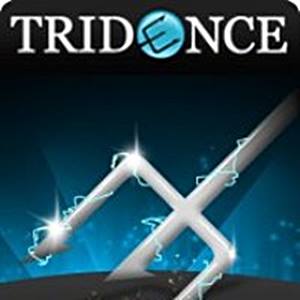In a bold move that reshapes the landscape of data analytics and enterprise insights, Clearlake Capital Group has entered a definitive agreement to acquire Dun & Bradstreet Holdings Inc. for a total enterprise value of $7.7 billion. The acquisition will convert the Jacksonville-based data powerhouse into a privately held company, giving it greater agility and investment flexibility.
The Deal: What You Need to KnowClearlake Capital, based in Santa Monica, California, will pay $9.15 per share in cash to Dun & Bradstreet’s shareholders. This transaction, already unanimously approved by the company’s Board of Directors, is expected to close in Q3 2025, pending regulatory and shareholder approvals.
The agreement includes an assumption of debt, raising the total deal value to $7.7 billion. This acquisition is a significant move for Clearlake, which is doubling down on AI-driven, analytics-first businesses.
A Company Transformed
Under the leadership of CEO Anthony Jabbour, Dun & Bradstreet has seen impressive growth:
- 40% increase in revenue
- 60% increase in EBITDA
- 600 basis points in margin expansion
- Debt leverage reduced from 9x to 3.6x
This strategic turnaround positions Dun & Bradstreet as a modern, streamlined, and highly valuable asset—perfectly aligned with Clearlake's investment strategy in tech-enabled, mission-critical platforms.
Clearlake’s Vision for the Future
Clearlake partners Behdad Eghbali and James Pade expressed strong confidence in Dun & Bradstreet’s market position. They highlighted the company's extensive proprietary data, global brand recognition, and potential to power the next generation of AI-based business insights.
“Dun & Bradstreet has built a trusted, globally recognized brand and amassed a preeminent set of data and analytics,” they said in a joint statement.
The goal? Leverage Dun & Bradstreet’s assets to unlock next-gen data solutions, support deeper integrations, and enhance enterprise decision-making on a global scale.
The “Go-Shop” Clause: Could There Be Another Buyer?
Notably, the agreement includes a 30-day go-shop period, giving Dun & Bradstreet the ability to explore other acquisition proposals. With Bank of America Securities advising and Weil, Gotshal & Manges LLP providing legal counsel, the company is evaluating alternatives but has not committed to updates unless a better offer emerges.
This clause adds a layer of suspense to the transaction, although Clearlake’s offer is seen as both competitive and strategic.
Dun & Bradstreet: 180 Years of Data Leadership
Founded in 1841, Dun & Bradstreet is among the oldest and most respected names in business data and analytics. It serves many clients globally, offering business credit scores, risk analytics, marketing insights, and supply chain intelligence.
Its 2021 relocation to Jacksonville, Florida, aligned the company with a growing fintech ecosystem and an increasingly business-friendly climate. With this acquisition, D&B may now be poised to scale even more rapidly under private ownership.
Jacksonville’s Growing Tech Ecosystem
The significance of this deal also extends to Jacksonville’s business environment. Dun & Bradstreet’s growth and continued operation in the city affirms the metro area’s position as a rising hub for data, tech, and innovation.
Clearlake’s investment could also mean more hiring, investment, and product development tied to Jacksonville—a significant win for the local economy.
What Happens After the Buyout?
Upon the deal’s completion:
- Dun & Bradstreet will be delisted from public stock exchanges
- The company will operate as a private entity
- Strategic decisions can be made with longer-term flexibility
- Potential increased focus on AI, machine learning, and cloud-based platforms
This move reflects a larger industry trend: private equity is backing established players that need digital acceleration.
My Final Thoughts
This acquisition isn’t just a financial maneuver—it’s a strategic bet on the future of data. With exemplary leadership and backing, Dun & Bradstreet could evolve into a full-scale, AI-powered decision intelligence platform without which businesses can’t survive. But this transition also comes with risks—loss of public transparency, potential restructuring, and integration challenges.
Still, this $7.7 billion deal solidifies one thing: data is not just the future—it’s big business. And Jacksonville remains at the heart of it.











